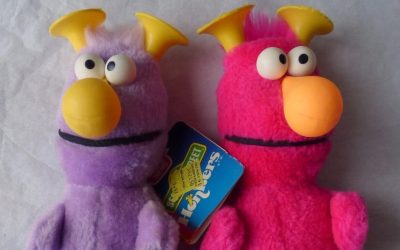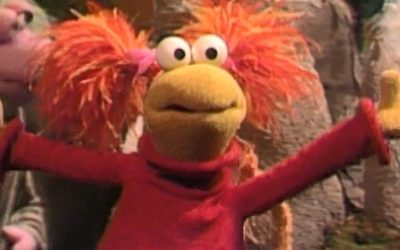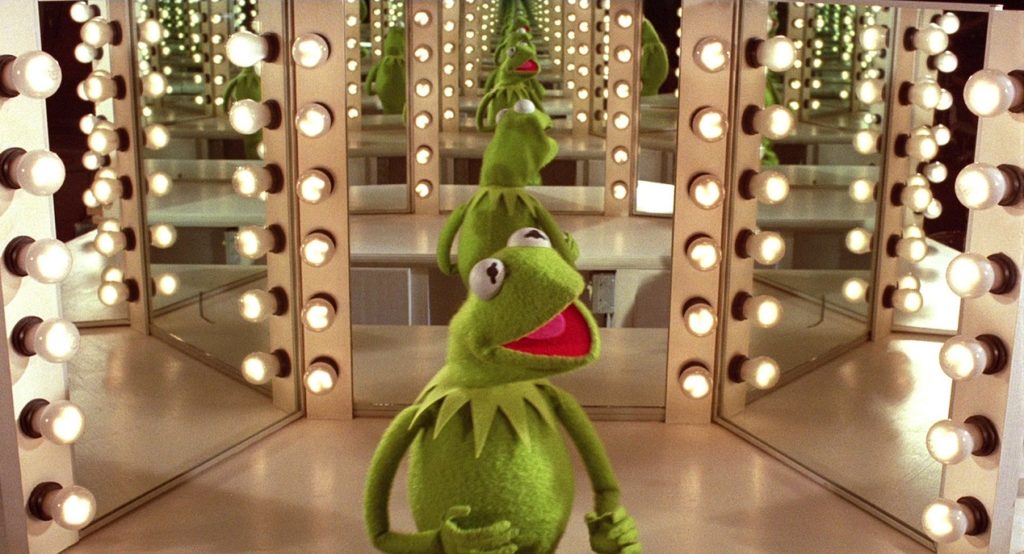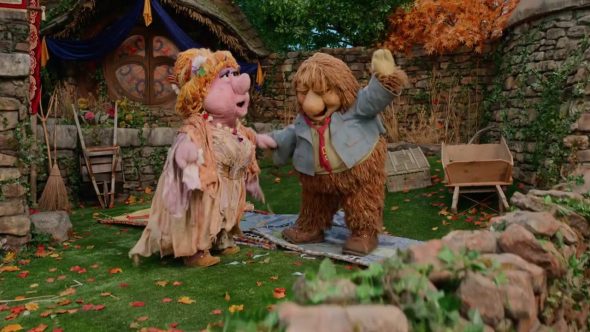
Last month, when I wrote a review of the Back to the Rock episode “I’m Pogey,” I said that there was so much to say about the main Wembley plotline that I didn’t have enough time to talk about Junior Gorg’s Boxing Day plotline. However, I said that I hoped I’d eventually have a chance to return to discuss that story.
Well, it’s Pride Month now, so it’s the perfect opportunity to discuss Junior Gorg’s binary-busting B-story. In this segment, Pa Gorg explains that on every Gorg’s 500th birthday, they need to choose to stand in one of two fabric boxes. But Junior can’t decide which box he likes best! How can he choose one and not the other? What if neither is right? Pa seems to really want Junior to make up his mind, but Junior just can’t. In the end, instead of choosing a box, Junior does his own thing and dances on top of both boxes. In other words, Junior rejects the binary and finds his own path forward: a classic queer metaphor told through flimsy boxes.
When the ToughPigs staff first saw this episode, though, we all had a lot to say about Junior’s plotline. Was it too on-the-nose or just on-the-nose enough? We talked on our group chat for what felt like hours. That’s why, I figured for this look at Junior Gorg’s story, I’d invite one of my other ToughPigs pals to discuss the topic with me. Since Katilyn Miller and I both have our experiences with dodging the gender binary, we decided to sit down and talk all about Boxing Day…
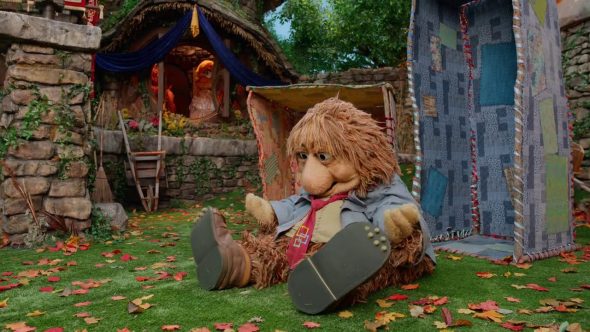
Becca: So Katilyn, I personally liked the Boxing Day storyline. I think it does a good job of making the idea of binaries seem ridiculous, which is the important thing a lot of queer people need to realize before they’re capable of coming out. But what about you? What’s your overall sense?
Katilyn: While I think that framing is useful for people who are already struggling with the binary forces of society, I don’t think it really works for anyone else watching. Plus, that exact message kind of overlaps with Pogey’s “Go, Bo” situation, which could really undercut the importance of the topic.
Becca: Right, I think one of the key things here is whether the B-story is necessary at all. Like you said, it’s kind of already covered by the “Go, Bo” c-plot. And even that is also covered by the main storyline. I guess it does reinforce the themes? But I wonder if it would be better if the Gorgs just weren’t involved this week at all. Do you think the time spent on Junior maybe would’ve been better elsewhere? I remember that being a common complaint a lot of us had.
Katilyn: As I was watching, I found myself wondering if this plot would have worked better as a Doozer story. Because one of the biggest factors in gender exploration for someone is how their social group perceives them. This is explored somewhat with Wembley, but for Junior, there is only Ma and Pa and therefore there aren’t quite the stakes that, say, a Doozer would face when they live in a single dome with all of their family and friends who might have opinions about such, perhaps both kind and unkind. But would that mirror the Fraggle plotline too much as well?
Becca: It’s interesting you say this, because I was so sure that Turbo Doozer would be revealed to be nonbinary in this season. Turbo is, to the best of my knowledge, the only recurring, speaking character who is performed by a nonbinary person, Ali J. Eisner. Turbo is actually never referred to with any pronouns in either season. So I was genuinely surprised that Turbo is only around very briefly in this episode.
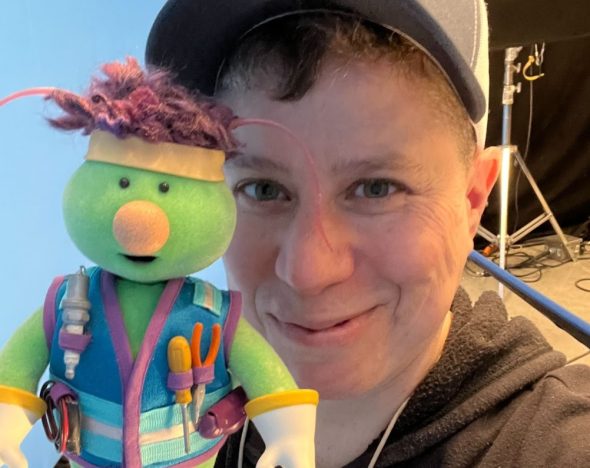
It’s interesting that the Doozers live in a society and the Gorgs don’t, but there could be real concerns to explore about parents coming to accept their child that aren’t really explored with Junior? They’re addressed, kind of, but not in any real depth. Do you think Pa’s reaction to Junior explores the issue enough?
Katilyn: Oh, Pa. He had so many forced character moments this season. He is obviously supposed to represent the type of person in society who has preconceived notions about how children should act and the choices they should make, as he shows a preference for one of the boxes. But there are small details about the Gorg scenes that don’t exactly mirror that prejudiced view.
First of all, Junior is given a choice of boxes. Whereas from the moment kids are born, they are forced into situations, clothes, and activities that adults deem appropriate, a lot of times based on gender. That’s often what makes someone’s choice later in life that much harder. They already have a pre-established past that they have to fight against.
Then there’s the Boxing Day legend, which Pa presents as a pretty straightforward story. It’s Junior who says that the box he chooses will determine his personality forever. What’s that about?
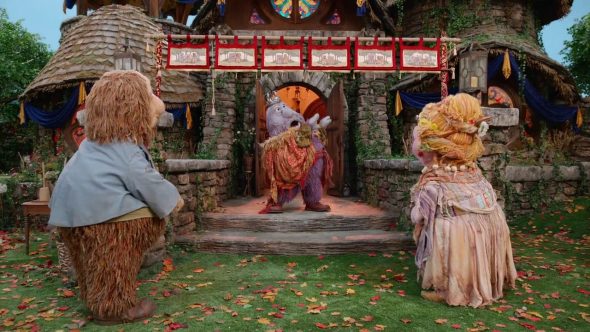
Becca: Yeah, it’s not clear what these boxes represent. Which on the one hand, is good, because at the end of the day, your gender box doesn’t define you. But, personally, I think it’s difficult to even understand what Pa is trying to say here. I appreciate that the boxes are silly and meaningless, but they can’t be silly and meaningless to Pa if he’s representing the perspective that the choice matters. Which, if you ask me, is kind of the problem with Pa in the show as a whole. He needs to be a kind of antagonist, but he also can’t be irredeemable, so he can never take his antagonism far enough.
But one thing I’ll say I definitely liked was Ma’s line at the end of the episode, about how Pa doesn’t need to understand Junior, he just needs to support him. In my trans advocacy work, that’s a big theme I try to tell cisgender (which means not transgender) people. Pa can’t feel like how Junior feels, because he’s not Junior. But he can still support his son. So that was a really, really important touch, I think.
Katilyn: Agreed! If there was one thing that this storyline nailed, it was the ending. Ma models the exact right attitude both in supporting her child and teaching Pa what the correct response is. His behavior isn’t just dismissed and assumed to have evolved with the situation. And of course, the most important lesson of all: it doesn’t matter what gender non-conforming (GNC) people do, the rest of the world can still eat cupcakes.
Becca: Especially once The Fraggle Foodie makes Onion Cupcakes.
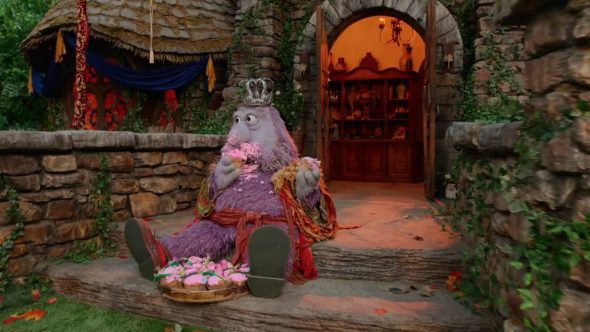
Anyway, if there’s one thing the Junior storyline does that no other character’s could, it’s ending in that specific way. It wouldn’t feel great to have the main Fraggles need to be coached on loving Wembley. In fact, one of the things I mentioned loving about “I’m Pogey” was how the other Fraggles accepted Wembley immediately. All of Wembley’s doubts about his friends were fully in his head. Because that’s exactly how it went when I came out as trans to most of my friends, especially when I came out to the ToughPigs team.
Katilyn: I think another big issue among ToughPigs staff was the use of actual boxes. Since so much of the language around gender uses the word “box” to describe how confined gender can be. Also the checkbox that exists on so many forms. And whether this choice by the writers was just too on-the-nose. Like the “echo chamber” in season one, it threw up flags among the adults watching that maybe this episode was going to be too straightforward. Do you think it was? Was there some other device they could have used other than boxes?
Becca: I’m of two minds about this. For one thing, I truly disliked the echo chamber episode in Season 1. To use a term the youth love, it’s kind of “cringey” to see them throwing that word around so literally.
So yeah, the team was right: boxes is very on-the-nose too. Like you said, I’ve heard that term again and again. It’s just very awkwardly thrown into the Gorg Lore too; these boxes don’t feel special. Which again, I like, because gender is what you make it. But it has the sense of being thrown together. I’m sure it wasn’t, but it kind of feels like that, and I wonder if it would’ve felt like that if it were “Each Gorg must choose one of two crowns!” or something like that.
But also, as a teacher and trans activist, I’m kind of also left wondering if the episode isn’t explicit enough. It’s not like we can walk away from this episode saying “our pal Junior is queer.” He’s queer-coded at best, but only in a metaphorical sense. I think kids really need to see this gender stuff spelled out super explicitly sometimes. I think adults need it too, if the recent confused reviews of Jane Schoenbrun’s I Saw The TV Glow are any indication. So I personally wish it were even more explicit. Maybe that would’ve been easier to do with a newer character like Turbo, who was only in a single episode of the 80s show.
Katilyn: True. I don’t see the writers following up on Junior’s non-conformity as they have with Pogey and Wembley. So it seems almost a wasted plot element if it never comes back around to having importance. I also think this storyline suffers from what some other reviewers have noted about episodes of Back to the Rock this season. They seem more concerned with bringing awareness to an issue rather than showing the repercussions or dangers of it.
As mentioned in the review of “This for That,” while the introduction of this new economy undoubtedly changes how the Fraggles operate, they realize their error and revert back to their prior ways before any actual consequences can take hold. So we never see the difficult situations that it can cause.
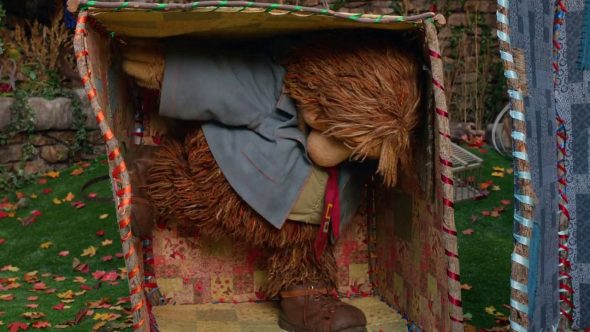
Similarly here, with Junior’s plotline, we only see that this is a situation that can happen and one way to handle it. We don’t get to see what happens when it’s handled poorly or if Junior did choose a box and what results from that choice. Obviously that would need a lot more time in the episode to explore. More time even than what Wembley’s main plot got. Do you think a full half-hour episode dedicated to something like this would be enough to get across enough about the experiences of GNC kids in western society for a fuller understanding?
Becca: I mean, I think it’s important to try. I think a full episode would help. Honestly, I’d like to see an entire kids’ show about this topic, but I know that’s not the point of Fraggle Rock. But I think this episode was a good step, even if it’s not a perfect one. But that leads to my final question: we’ve seen a nice evolution from Season 1’s largely metaphorical “The Glow” to Season 2’s more literal “I’m Pogey.” Where would you like to see the show go in Season 3?
Katilyn: In terms of queer representation, I know I speak for at least two people when I say they should explore asexual identity. But that might open up a can of worms in terms of having to also explore sexual identity. And with kids’ shows that can be a big ask. But I know that if anyone could do it, it’s Fraggle Rock. I would be happy if they continued to explore Wembley and Pogey’s identities in all of the directions those could go, keeping these topics at the forefront of watchers’ minds.
Becca: I agree, there’s a lot more to tell with those two characters. I know I’m speaking as a fan and not a writer or performer, but I think it would be worth the courage it would take to do so. Again, I’d like to see some terms get used explicitly (like the word “nonbinary” or “transgender”) even if just in a Doc segment that puts a button on what we’ve just seen the Fraggles do. But I think the show is headed in a good direction, even if I agree the Junior Gorg stuff needed some work.
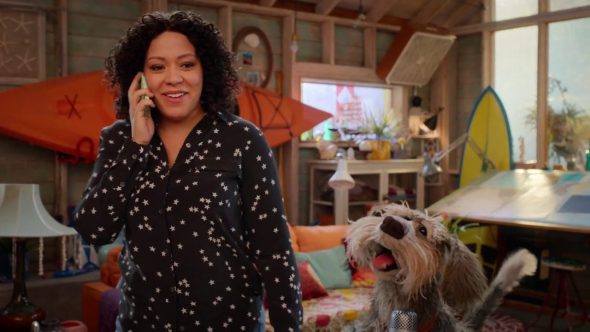
In the end though, while we’re not Fraggle Rock writers, we can still make the world a little better. Remember the lesson Ma teaches us: you don’t have to understand exactly what another person is going through to be able to love and support them. Call out the Pa Gorgs in your life. You can make the world a little Fragglier.
(And hey, as of this article’s publication, there are still TWO DAYS left to donate to our Pride Month charity drive! Click here to learn how you can support LGBTQ+ charities while winning amazing Muppet prizes!)
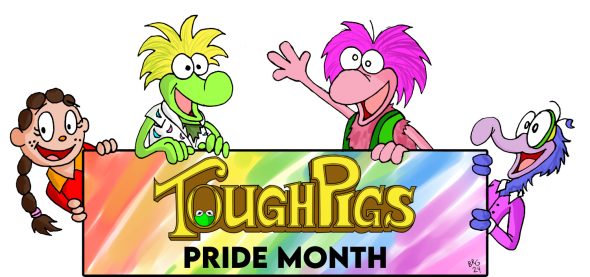
Click here to eat your onion cupcakes on the ToughPigs Discord!
by Becca Petunia and Katilyn Miller

